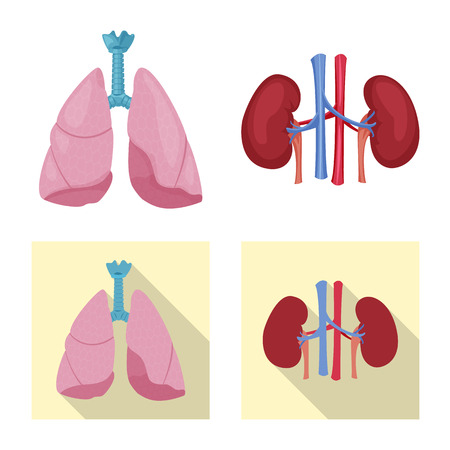1. Understanding Emotional and Mental Health Challenges in Cardiac Rehabilitation
When recovering from a heart attack or other serious heart event, it’s normal to focus on your physical health—like exercise, medications, and diet. But what many people don’t realize is that emotional and mental health is just as important in cardiac rehabilitation. After a cardiac event, patients often experience a mix of emotions that can impact recovery. Let’s explore some of the most common emotional and psychological challenges faced by people in cardiac rehab.
Anxiety, Depression, and Stress: Common Reactions
Many cardiac rehab patients feel anxious about their future health. Some worry about having another heart problem or whether they can return to their normal routines. It’s also very common to feel down or even depressed after a heart event. The stress of managing new medications, making lifestyle changes, and adjusting to a different pace of life can be overwhelming.
Common Emotional and Psychological Issues After a Cardiac Event
| Issue | What It Feels Like | Possible Triggers |
|---|---|---|
| Anxiety | Worry, restlessness, feeling “on edge” | Fear of another heart event, uncertainty about recovery |
| Depression | Sadness, loss of interest, low energy | Changes in routine, loss of independence, physical limitations |
| Stress | Irritability, trouble sleeping, tension | Managing new routines, concerns about work or family roles |
Why These Feelings Matter
If anxiety, depression, or stress are left unaddressed during cardiac rehab, they can make it harder to stick with exercise programs or healthy habits. They might even affect how quickly you recover physically. That’s why understanding and talking about these feelings is so important for every patient in cardiac rehab.
2. The Importance of Integrating Mental Health Support
When we think about cardiac rehabilitation, most people focus on the physical aspect—exercises, medications, and lifestyle changes. However, mental and emotional well-being are just as important for a full recovery. Addressing mental health needs in cardiac rehab can make a huge difference in how patients heal and how well they stick to their rehab plans.
How Mental Health Impacts Recovery
After a heart event, it’s normal to feel worried, sad, or even scared. These emotions can sometimes turn into depression or anxiety, making it harder to stay motivated. When patients get support for their mental health, they often experience:
| Benefit | Description |
|---|---|
| Better Recovery Outcomes | Patients who manage stress and emotional challenges recover faster and have fewer complications. |
| Improved Rehab Adherence | Mental health support helps people show up for sessions and follow through with treatment plans. |
| Enhanced Quality of Life | Feeling emotionally supported leads to more positive outlooks and better day-to-day living. |
The Mind-Heart Connection
Research shows that mental and physical health are closely linked. For example, high stress or depression can raise blood pressure or make it harder to eat healthy and exercise. By caring for both mind and body during cardiac rehab, patients set themselves up for long-term success.
Promoting Whole-Person Care
In many American rehab centers, integrating counseling or support groups is now common practice. These services help patients talk openly about their feelings, learn coping strategies, and connect with others facing similar challenges. This holistic approach ensures everyone gets the comprehensive care they need—not just for their heart, but for their overall well-being.
Simple Steps to Support Mental Health in Cardiac Rehab
- Encourage open conversations about feelings and worries
- Offer access to therapists or social workers as part of the rehab team
- Create group sessions where patients can share experiences
- Teach relaxation techniques like deep breathing or mindfulness
- Provide resources for ongoing mental health support after leaving the program
This focus on emotional and mental health not only improves recovery but also helps people build healthier habits for life.

3. Approaches to Emotional Support in Cardiac Rehab
Understanding Counseling Options
Emotional and mental health support plays a key role in cardiac rehabilitation programs across the United States. After a heart event, many people feel anxious, depressed, or overwhelmed. That’s why counseling is an important part of recovery. In U.S. healthcare settings, patients have access to several types of emotional support, including professional therapy and peer support groups.
Cognitive-Behavioral Therapy (CBT)
Cognitive-behavioral therapy, commonly known as CBT, is one of the most widely used counseling options in cardiac rehab. This approach helps people identify negative thought patterns and replace them with healthier ones. CBT can help reduce feelings of stress and anxiety that are common after a heart attack or surgery. Therapists work with patients one-on-one or in small groups, teaching practical skills for managing emotions and coping with lifestyle changes.
Benefits of CBT in Cardiac Rehab
| Benefit | Description |
|---|---|
| Stress Reduction | Helps manage anxiety related to heart health concerns. |
| Improved Mood | Addresses symptoms of depression often experienced after cardiac events. |
| Healthier Habits | Encourages positive thinking and behavior change, supporting physical recovery. |
Support Groups
Support groups are another popular form of emotional care in cardiac rehabilitation centers throughout the U.S. These groups bring together people who have experienced similar heart issues. Sharing stories and advice helps members feel less alone and more understood. Support groups can be led by healthcare professionals or organized by local hospitals and community organizations.
How Support Groups Work
- Peer Connection: Members share experiences, tips, and encouragement.
- Guidance: Facilitators provide education on heart health and coping strategies.
- Accessibility: Many groups offer both in-person meetings and online sessions for convenience.
Integration into U.S. Healthcare Settings
Counseling services like CBT and support groups are often recommended by cardiologists or primary care doctors as part of a comprehensive cardiac rehab plan. Many hospitals have dedicated mental health professionals on staff to assist patients during their recovery journey. Insurance coverage for these services varies, but most plans include some level of mental health support as part of cardiac rehab benefits.
4. Role of Family, Friends, and Community Resources
Recovering from a heart condition is not just about physical healing—it’s also about feeling supported emotionally and mentally. A strong support system can make a world of difference during cardiac rehabilitation. Let’s look at how family, friends, and community resources help reinforce emotional well-being for people on the road to recovery.
Family Involvement: The Power of Togetherness
Having loved ones involved in the recovery process gives patients confidence and encouragement. Families can help by listening, offering practical help with daily tasks, and joining educational sessions to better understand what their loved one is experiencing. When family members participate in rehab programs or attend medical appointments together, patients often feel less isolated and more motivated to stick with healthy lifestyle changes.
Ways Families Support Emotional Health
| Support Type | Examples |
|---|---|
| Emotional Support | Listening to concerns, offering encouragement, being present during tough times |
| Practical Help | Driving to appointments, preparing heart-healthy meals, helping with medications |
| Motivation | Exercising together, celebrating milestones, reinforcing positive habits |
| Education | Learning about heart health and rehab goals as a team |
The Value of Friendships
Friends bring joy and a sense of normalcy to life after a cardiac event. Socializing—whether it’s chatting over coffee or going for a walk—can lift spirits and reduce feelings of anxiety or sadness. Friends who encourage healthy choices and check in regularly help patients stay connected to their community and feel less alone.
Community Resources: Expanding Your Circle of Support
In many American communities, there are programs designed specifically for people recovering from heart issues. These include local support groups, wellness workshops, exercise classes adapted for cardiac patients, and counseling services. Community centers, hospitals, and even some churches may offer resources that provide both education and social interaction.
Examples of Community-Based Programs
| Resource Type | Description | Where to Find It |
|---|---|---|
| Cardiac Support Groups | Meetings where patients share experiences and advice in a safe space | Hospitals, community centers, online platforms (like the American Heart Association) |
| Mental Health Counseling | Professional guidance for managing stress, anxiety, or depression after a cardiac event | Counseling centers, telehealth services, local clinics |
| Exercise Programs for Heart Health | Supervised classes tailored for people with heart conditions (e.g., walking groups) | Parks departments, YMCAs, hospital wellness programs |
| Nutritional Workshops | Group sessions on cooking and eating for heart health | Community colleges, health departments, local nonprofits |
Tapping Into Your Support Network Matters!
No one has to face cardiac recovery alone. By reaching out to family members, leaning on friends, and connecting with community resources, patients build a strong foundation for emotional healing as they work toward better heart health.
5. Self-Care Strategies and Patient Empowerment
Why Self-Care Matters in Cardiac Rehabilitation
Taking care of your emotional and mental well-being is just as important as managing your physical health after a heart event. In the United States, many cardiac rehab programs encourage patients to learn practical self-care strategies that support overall recovery. These methods help reduce stress, boost resilience, and promote a positive outlook during your rehabilitation journey.
Popular Self-Help Techniques in the U.S.
Here are some commonly recommended self-help techniques that you can start using right away:
| Technique | Description | How to Practice |
|---|---|---|
| Stress Management | Learning to recognize and handle daily stressors can help prevent anxiety and depression. | Practice deep breathing, take breaks, talk to a friend or counselor, or engage in hobbies you enjoy. |
| Mindfulness & Meditation | Being present in the moment helps calm the mind and body, reducing worry about the future. | Try guided meditation apps (like Headspace or Calm), or spend 5 minutes each day focusing on your breath. |
| Positive Self-Talk | Changing negative thoughts into encouraging ones supports confidence and motivation. | Replace “I can’t do this” with “I’m doing my best, and that’s enough.” Write down positive affirmations. |
| Setting Realistic Goals | Small, achievable goals keep you motivated and prevent feeling overwhelmed. | Set daily or weekly goals such as walking for 10 minutes or eating one extra serving of vegetables. |
| Building Social Support | Connecting with others helps you feel less alone and more supported during recovery. | Join a local support group, attend community events, or reach out to family and friends regularly. |
Empowering Yourself Through Small Changes
You don’t have to make big changes all at once. Start by choosing one or two strategies from the table above. As you become comfortable with these practices, you’ll likely notice improvements in your mood and energy levels. Over time, building these habits can make a real difference in your recovery process.
Your Rehab Team Is Here for You
If you ever feel stuck or unsure where to begin, remember that your cardiac rehab team—including counselors, social workers, nurses, and doctors—are here to help. Don’t hesitate to ask questions or request resources tailored to your needs. Taking an active role in your self-care empowers you to manage both your heart health and emotional well-being effectively.


